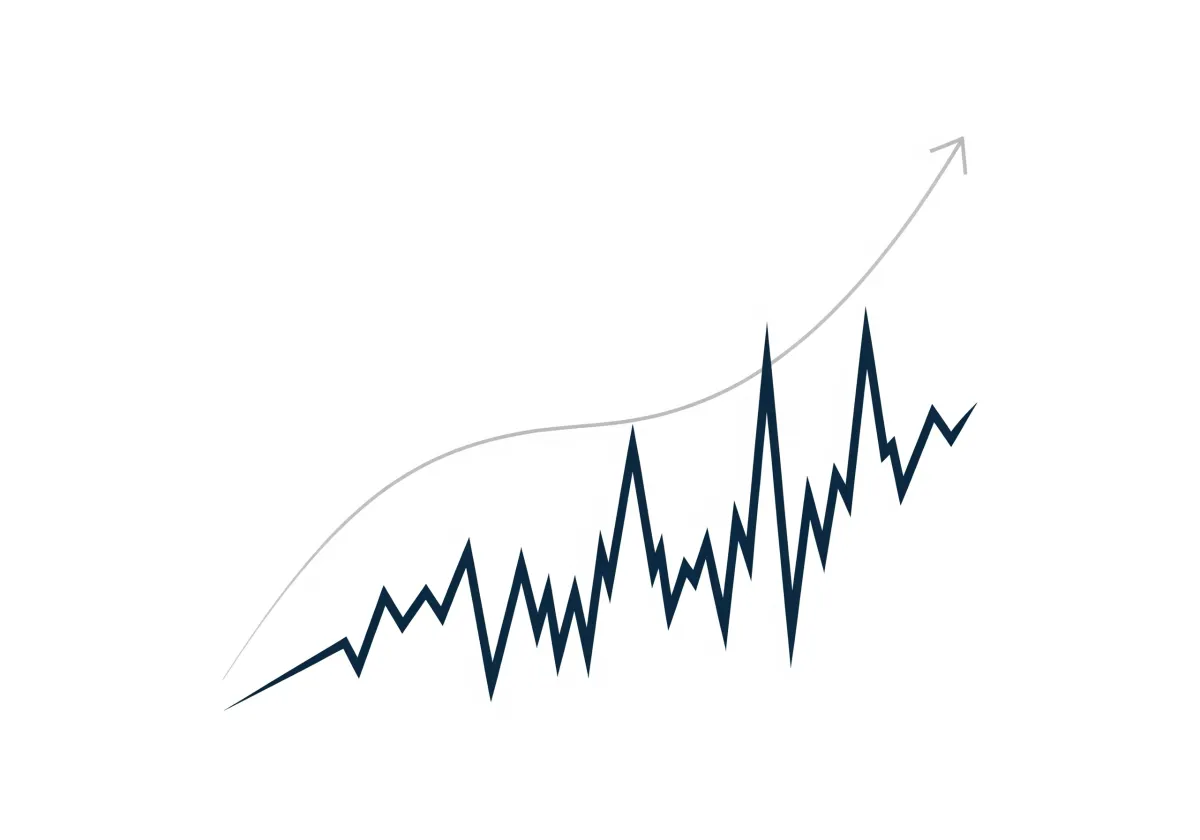
Mind the Gap: Are You Leaving Money on the Table with Your Investments?
Have you ever looked at the returns of your investment funds and then compared them to what you actually earned? It might surprise you to learn that for many investors, these numbers don't quite line up. This difference is what we in the financial planning world call the "behavior gap," and it's a critical concept to understand, especially as you approach or navigate retirement.
Think of your investment portfolio as a vehicle designed to get you to your retirement goals. The funds you choose represent the engine. Now, imagine the fund itself (the engine) performs admirably, delivering solid returns. But what if the driver (that's you, or sometimes me, as your advisor) keeps hitting the brakes, swerving erratically, or making impulsive detours? You might not reach your destination as efficiently, or you might even run out of gas sooner than you planned. That's essentially what the behavior gap looks like.
Morningstar, a well-respected investment research firm, has been studying this phenomenon for years. Their annual "Mind the Gap" report provides some eye-opening insights. According to their latest findings, for the decade ending December 31, 2024, the average dollar invested in mutual funds and ETFs earned around 7.0% per year. Sounds pretty good, right? But here's the kicker: the total performance of those same funds was actually 8.2% annually. That's a 1.2 percentage point gap! Over the long run, that difference can really add up and significantly impact your retirement security.
Now, the size of this gap isn't uniform across all types of investments. Some areas see a more significant erosion of returns due to investor behavior than others. For instance, Morningstar's report highlighted that investors in taxable-bond and municipal-bond funds only captured about 1.2% in returns out of a potential 2.2%. That means they essentially lost almost half of the available returns! This often happens because investors might chase yields or react strongly to interest rate fluctuations, buying and selling at inopportune times.
On the other hand, the report found that investors in allocation funds, like those popular target-date retirement funds many of you might be using in your 401(k)s, tended to do much better. In these funds, the dollar-weighted returns were 6.3% per year, very close to the funds' overall return of 6.5%. Why might this be the case? Well, it's likely because these funds are often viewed as long-term investments, and perhaps investors are less inclined to make frequent changes based on short-term market noise. This reinforces a crucial point: a long-term perspective and sticking to a well-thought-out plan are vital.
The "Mind the Gap" report also pointed out other factors that can contribute to this underperformance. Funds with significant tracking error (meaning they don't closely follow their benchmark), especially those that underperform, and funds experiencing more volatile cash flows (large amounts of money moving in and out frequently) also tended to exhibit a wider behavior gap. This often signals that investors are reacting to the fund's performance or market events, sometimes emotionally.
So, what can we do about this? This is where the guidance of a trusted financial advisor can be invaluable. Morningstar's research actually emphasizes the crucial role advisors play in helping clients "stay the course." Think about it: when the market gets bumpy, or when you hear unsettling news, your first instinct might be to make a change to your investments. An advisor can act as a sounding board, reminding you of your long-term goals and the strategy we've put in place to achieve them. By connecting your portfolio design directly to your personal retirement objectives, I can help you resist the urge to make those potentially costly emotional decisions.
While I wouldn't necessarily say my primary role is "managing your behavior," it's certainly true that guiding you to adhere to a sound investment strategy aligned with your long-term objectives is a significant part of what I do. In fact, Morningstar suggests that this guidance alone could, in some cases, "more than make up for their fees." My goal isn't to just pick the "best" investments (though that's important too), but to help you navigate the inevitable ups and downs of the market with confidence, preventing you from inadvertently sabotaging your own progress.
As you approach or live in retirement, preserving your capital and ensuring a steady stream of income are paramount. Don't let emotional reactions and market timing mistakes erode your hard-earned savings. Understanding the "behavior gap" is the first step. Working with a CERTIFIED FINANCIAL PLANNER® professional like myself can be the key to bridging that gap and giving you greater peace of mind as you enjoy your retirement years here in Redding and beyond.
